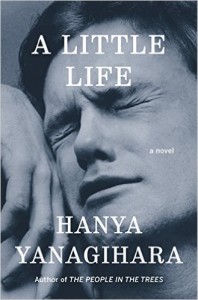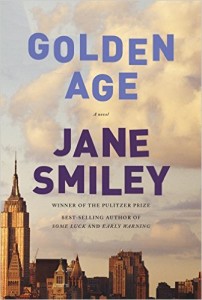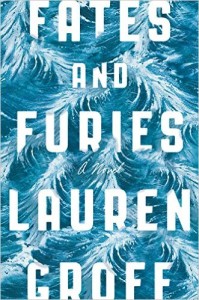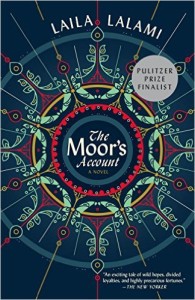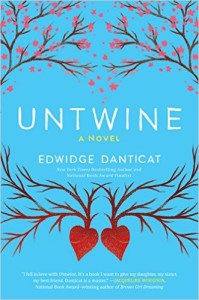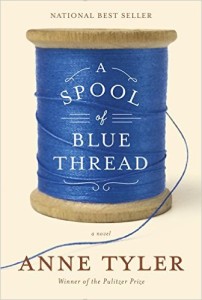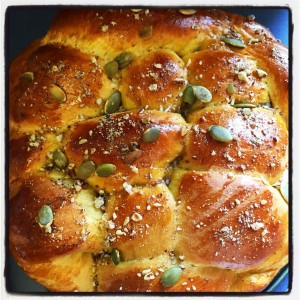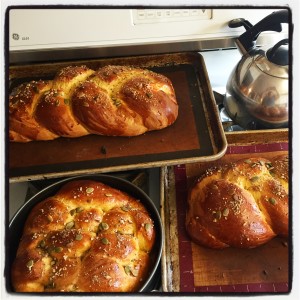Welcome to His Brother’s Keeper, a fictional mystery series set in 2000, in New York. I’ve decided to periodically lend my blog to a friend, Eva Hirschel. Eva doesn’t have a social media presence but she does have a mystery that she wanted to publish serially on-line, so I’m giving her a hand. (If you’re just tuning in now, I suggest that you start at the beginning). Here is Part I, Chapter 17. Enjoy!
Chapter Seventeen
 It was late in the day by the time I got back to Brooklyn with Hannah and her class. Ronit met us at pick up and I sent them home, then ran to the subway as quickly as was humanly possible, risking looking rude toward the other mothers for not sticking around to do the usual after-school post-field-trip chat.
It was late in the day by the time I got back to Brooklyn with Hannah and her class. Ronit met us at pick up and I sent them home, then ran to the subway as quickly as was humanly possible, risking looking rude toward the other mothers for not sticking around to do the usual after-school post-field-trip chat.
The Jewish Genealogical Division of the New York Public Library was located in the basement of the main branch of the library on Fifth Avenue and Forty-second Street. I dashed up the many steps leading to the front doors of the library, nodding in passing to the famous lions who kept guard on either side of the stone steps, avoided the New Yorkers sprawled across the steps taking advantage of the sunny day, and ran inside. The temperature was quite a few degrees colder inside the building, but the chill that ran down my spine was not due to the cold. There was a special kind of reverence that hit me every time I entered this branch of the library, the main reference branch of the whole New York Public Library system. Libraries were a kind of sacred space, and this particular library was truly worthy of reverence. Its vast spaces, hushed tones, muted color scheme, majestic murals and high vaulted ceilings created a sense of awe. Just trying to grasp the amount of knowledge and information available within the walls of this building was enough to make me giddy. Forget Central Park, the Empire State Building, or the South Street Seaport–the main reading room was one of the great wonders of New York. A cavernous, echoing space filled with polished wooden desks, substantial wooden chairs, and green desk lamps, where an incredible spectrum of humanity read, wrote, researched, and dreamed, the main reading room was a candy store packed with endless possibilities of knowledge.
This afternoon, however, my research led me downstairs, to Room 101. It was a miniature version of the main reading room, complete with the same wooden desks, chairs, and reading lamps. Though my work rarely allowed me to indulge in it, I loved the tactile adventure of pure research, research that involved actual books, card catalogues, pens, and index cards. The Internet and other new technologies made research so much easier and faster, yet something was missing from the process. There was almost nothing I loved better than sitting at one of those wooden tables, a pile of books in front of me waiting to be opened, and my supplies at the ready. If it was possible to bottle the musty, slightly clammy smell of old books, I’d be one happy person. My work this afternoon promised to be the old-fashioned kind of book research, a good antidote to the computer searches and e-mail driven work I’d been so busy with lately. Despite the twinge of guilt I felt about not spending the afternoon with the kids, and especially Caleb, whom I had not seen all day, I was excited and in a great mood.
I walked over to talk to the librarian, a tall, thin, amiable guy, with a lopsided grin and a head of dirty-blond curls inexplicably parted in the middle.
“Hi there,” he said. “What good stuff are you coming here to find, and how can I be of service?”
I explained what I was looking for, and he helped me locate the book. According to him, I was lucky that NYPL had the book, because their collection of Yizkor books was incomplete. The best source for Yizkor books, apparently, was the YIVO Institute, except that it was impossible to find anything there.
Before I knew it, I was happily ensconced in a chair, the Halizch Yizkor book in front of me and a pile of notecards and a pen to my right. I could have turned to page 138 or 174 right away, but first I wanted to get an idea of the structure of the book. Each Yizkor book is different, but the basic elements are the same. It is a history of a certain town, one that either no longer exists today at all, or one in which there are no longer any Jews. The books generally record the renowned rabbis and dignitaries who lived in the town, along with information about the communal institutions. There can be memorials to other people who lived in the town as well.
Jews had first come to Halizch, a small shtetl about 30 kilometers from Warsaw, in 1763. There they lived for many generations, on relatively good terms with their Christian neighbors. In 1935, about sixty percent of the population was Jewish. The Jews of Halizch were mostly simple folk who worked in manual labor or owned small family businesses. There were woodcutters, milkmen, a blacksmith, tailors, watchmakers, a kosher butcher, innkeepers, and the like. There were the standard Jewish communal organizations, like the chevra kadisha, the society that prepared bodies for burial, the cheder, where boys were educated, the beis midrash, where they continued their Jewish studies, the mikveh, or ritual bath, and of course the synagogue. Like many Polish synagogues, it was a modest wooden building that purposely did not call attention to itself. But it was what went on inside the synagogue that was a source of great pride for the residents of Halizch, for the town was the seat of the Halizch chasidic dynasty, home of the Halizcher rebbe.
Jews came from all over to meet the rebbe, study with him, and hear him speak. On Shabbat the town would be packed with visitors who made long and difficult journeys in order to be able to spend time in the presence of their rebbe. It was a great honor to get to share a meal with the rebbe, who, seated at a large table ringed by his chasidim, would take small bites of food and then pass along the rest of his meals to be divided by his followers. At these meals he would tell stories, sing niggunim, and teach Torah. During the time memorialized in the Yizkor book, the years directly preceding the war, most of the local Jews were followers of the rebbe, Yosef Yehudah, who had followed in the footsteps of his revered father, Leib Mendel. There was a great deal written in the Yizkor book about these beloved rebbes. Both were said to have incredible powers, to teach and to preach, to heal and to comfort. Both were thought to have direct lines of communication with God, their Creator. Much was written about Leib Mendel’s healing touch and comforting song, and about Yosef Yehudah’s eyes, with their ability to penetrate one’s very soul with a glance.
At the back of the book was an extensive list of those from Halizch who died during the Holocaust. I checked the lists, and saw right away that Yosef Yehudah, Yankeleh, and Leib Mendel were all listed as having died in Treblinka. As far as this book was concerned, none of them had survived.
Many of the essays focused on the impact of the Holocaust on the town and on its inhabitants. Their experiences in the war were chronicled and the memories of their suffering and deaths properly recorded. From what I could gather from flipping through the book, the Jewish citizens of Halizch suffered greatly in the war. By the time the war ended, the majority of the town’s Jewish population had been killed. Most of the Jews of Halizch had been Halizcher chasidim, and had loyally followed the teachings of their rebbe that their fate was in God’s hands. Only some, like Mrs. Freiburg and her husband, left and thus survived. The passivity of it astounded me, especially since I had been fed a rich diet of active Jewish resistance to martyrdom. The heroes of my childhood were the Jews who had fought back, the partisans and the ghetto fighters, because that was the only way I could make sense of such a situation. I was able to accept that Jews lacked the resources and numbers to effectively stand up to the Nazi war machine, but the kind of passive acceptance of fate that I saw spelled out before me in the Yizkor book made no sense. I didn’t want to incorporate this new information into my understanding of the Holocaust. I had always rejected the idea of Jews going like sheep to the slaughter, as it came dangerously close to blaming the victim. And more than that, I didn’t understand the kind of faith in God and loyalty to a human leader that would cause people to not try to save themselves.
Remembering that I didn’t have a lot of time before heading back to Brooklyn, I forced myself to stop musing and get back to work. As I continued to flip through the book, one account leapt out at me. It was written by Moishe Feldman, a survivor who, like Avrum Shapira, had been in Treblinka. Included in this account was a strange dream, identical in every way to the dream I had heard in the Achim Brothers Luncheonette except for one interesting difference. In this version of the dream, the boy rising from the mass grave was clutching a large silver Kiddush cup. The symbolism of this cup meant a great deal to the writer of this account, who, like Mr. Shapira, saw the dream as a sign of reassurance and love from the rebbe, whose cup it had been and who had used the cup on many special occasions with his chasidim. I made some notes on this version of the dream, asking myself whether this was in fact something that both men had actually dreamt, or perhaps heard from another party and had come to think of as their own. The rationalist in me had to ask also whether it had been a dream at all, or whether in their weakened, almost delirious states they had actually seen something happen that they naturally thought could only be a dream. I continued to flip through the book, and my eye was caught by a sketch of a Kiddush cup. I turned back a page to the beginning of this entry, and saw that it was written by Avrum Shapira himself. And sure enough, the picture of the cup was on page 174, one of the page numbers he had scribbled on the piece of paper he stuffed into my bag. The essay was intended as a memorial to Mr. Shapira’s father, the local scribe, and detailed the kind of work that he did and what a good and pious man he had been. But there was also some mention about other aspects of daily life in Halizch, including the relationship between the chasidim and their rebbe.
Apparently there was a special, oversized silver Kiddush cup that played an important role in the community. It was very old, and was said to have been handed down to Yosef Yehudah from his father Leib Mendel, who had been given it by his teacher, Yoel Shlomo . A prized possession among the Halizchers, the cup was greatly sought after for use in weddings and at brisses, and was passed around to all when the rebbe shared a meal with his chasidim. It seemed to function almost as a good luck charm. It would make sense then that Moishe Feldman might have dreamed that he saw the grandson rise from the grave clutching the kiddish cup, and that he would have understood the vision as a good sign. I wasn’t sure exactly why Avrum Shapira would have pointed me to this page, unless he was trying in a round-about way to show me that there were other versions of his dream and to explain the discrepancies by letting me know how important the kiddish cup was to them. It didn’t totally make sense, but I made a note and decided to keep going. I was about to turn the page, when my eyes were pulled back to the picture. Something about that drawing looked incredibly familiar. But surely, despite its age, it was a common design. Perhaps I had seen one like it in a museum or a book of Judaica. Maybe a cup like this one had even been featured in the Jewish calendar that we got sent every year from one of the local Jewish funeral homes. Yet something bothered me in the pit of my stomach about this cup, and all I could think to do was make a note on yet another index card. This cup must play some role in my case—it must be important, or Avrum Shapira wouldn’t have sent me to look at it—but I couldn’t fathom where it fit in. I flagged the page with a post-it so that I would make sure to xerox it before I went home.
The next essay I turned to was about the conflict between the Zionists and the Halizcher chasidim. Though Zionism had not been particularly popular, there were apparently some local Jews who were attracted to the idea of a new Jewish state. Primarily young people, they saw Zionism as an antidote to the Jewish life available in Eastern Europe, a life filled with constant fear and terror, a life based on faith and not on action. Though affiliating with the Zionists meant making a break, both emotional and physically, with their families, some had chosen this path. In the early 1930’s a handful of young people left Halizch for Palestine, including Ruchel and Yitzhak Gelberman. And then in the late 1930’s and into the early 1940’s, as the situation became even more dire for the Jews, several emissaries from Palestine slipped back into Eastern Europe on a mission to try and save as many lives as possible.
The account was vague on the details of this attempt, like how they were able to enter Poland, and who funded their mission. Between the weapons and bribes necessary to carry out their task, they had to have been heavily financed. But this was a collection of memories and personal accounts of history, not a scholarly work, and so many details were left out. I would have to do more research on this issue elsewhere. However, the essay did recount the story that I had already heard, that the Zionists were primarily concerned with saving children, and well-known figures, the Halizcher rebbe Yosef Yehudah among them. But as I had already learned, he adamantly refused, citing his faith in God, his loathing of the Zionists who were forcing the hand of God by trying to establish a Jewish state before the arrival of the Messiah, and his unwillingness to abandon his followers to their fates. A strong man he must have been, to refuse a chance to be spared. The account told in detail how the chasidim went to the rebbe en masse, begging him to at least let the boy Leib Mendel go, so that the future of the Halizchers would be assured. But he stubbornly refused, even when they came to him with all the gold and jewelry they could collect, in order to pay for false papers and secure passage. The account conveyed some of the anger, disappointment, and confusion of the chasidim when the rebbe refused. And despite his immediate refusal, they had still given their hoard in to his safekeeping, in the hopes that he would change his mind. Though nothing in the essay indicated what might have happened to the valuables subsequently, there was one part that especially intrigued me. It said, “The rebbe turned his back on the Zionists and their offer of help. His followers understood his reasons, but still felt he should have saved his grandson. Though no one wanted to doubt the rebbe, some secretly wondered if his refusal had something to do with the fact that his chossen had taken his beloved daughter away from Poland and away from chasidut.” I knew enough Yiddish to know that chossen was the word for both groom and son-in-law, but I didn’t understand the reference. Was the author’s use of this word here merely a vague allusion to the fact that the rebbe had a son-in-law who had chosen Zionism over chasidism? Or was this reference more specific? Could it mean that Yitzhak Gelberman had been actively involved in trying to save the rebbe and Leib Mendel? If so, might the trail of the missing money lead in his direction? This was getting more tangled by the minute, and none of it was making sense or providing the answers I needed. Though it was a tenuous possibility at best, I diligently made a note to check out whether or not Yitzhak Gelberman had played a role in rescuing European Jews, and kept going.
There was one essay on the Halizcher dynasty that was particularly interesting. It was written by Shlomo Linsk, who had grown up in a Halizcher family. His father had been Yosef Yehudah’s shamash, his right-hand man whose glory lay not in his exemplary scholarship or in his immense riches, neither of which he possessed, but through the access and proximity to the great rebbe that he gained through his selfless devotion. He composed letters for the rebbe, functioned as an intermediary between the rebbe and his chasidim when needed, and made countless arrangements of all kinds, behind-the-scenes work that garnered him little fame but much praise from the rebbe. In his memorial essay, Shlomo Linsk traced the genealogy of both the family and the dynasty, connecting Leib Mendel back to the Baal Shem Tov himself, through a chain of disciples and disciples of disciples. Linsk’s version was almost identical to what Rabbi Springer had described to me. Leib Mendel, Yosef Yehudah’s father, was the founder of the Halizcher dynasty. Leib Mendel had been the disciple of Yoel Shlomo, who was the disciple of Yisrael Eliezer haLevi, who was the disciple of Dov Baer, who was the disciple of the Baal Shem Tov. The line went straight back to the source. Leib Mendel had been no unknown upstart, rather he was the inheritor of a tradition and a hand-picked leader. He had yichus, the right credentials. Linsk’s account echoed what I had already heard and read elsewhere, that while Yosef Yehudah had only daughters, it was acknowledged that his grandson Leib Mendel, named of course after the original rebbe, would someday become the next leader. As a young boy he had already greatly impressed the Halizcher chasidim with his piety, scholarship, oratorial skills, and innate leadership ability.
I kept reading, looking for some new information. I turned the page, and the page number jumped up at me. Page 138. Why had Avrum Shapira directed me to this particular page? Impatient now, I quickly scanned the text. And there it was. A story, a rumor really, an unconfirmed wisp of possibility. It was believed that the original Leib Mendel had inherited not only the mantle of leadership from his teacher Yoel Shlomo , but something else as well. What Rabbi Springer had not told me when he spoke about the connection between the Halizchers and the Baal Shem Tov was that supposedly the first Leib Mendel had inherited the only original writing left by the Baal Shem Tov. Rabbi Springer had told me that the Besht had left no writings, but according to Linsk’s essay, that was not entirely the case. Supposedly, Yosef Yehudah was given a piece of parchment by his father on which the Besht had written some of his teachings. And not any teachings, but his teachings about the end of days and a prediction about coming of the Messiah. This was no small thing. The only extant writings by the Besht himself, and about such an important topic. Being in possession of such a thing must have contributed greatly to the status of the Halizchers, and to that of their leaders.
The first question I had to ask was whether this story contained any truth. Did such a document actually exist? And if it did, was it really from the Baal Shem Tov, or was it written by a later disciple? Was it a complete forgery? Linsk’s essay went on to try to prove that such a document did in fact exist, and that it had once been carefully inspected by a local scribe, Menachem Shapira, who had supported its supposed provenance. It would be logical to assume that this Shapira was the father of Avrum Shapira. This was obviously the piece of parchment of which he had spoken when we met. But Linsk continued by lamenting the fact that like so much else, the document disappeared during the war and had probably been destroyed.
All of this of course led to many more questions. Why had Avrum Shapira not told me about this directly? Why had he not spoken about the document, when he clearly wanted me to learn about it? Why had he gone so far to convince me to give up the chase when we met in person, and then provided the very clues that would help me continue? And why did he need to point me toward this information in the first place? How was it connected to my search for the Gelbermans? If this precious document had existed at one time, had it survived the war, and if so, where was it now? Was he trying to tell me that searching for the Gelbermans might be fruitless, but that a search for the Kiddush cup might turn up something of interest?
This mysterious document was undoubtedly a source of pride for the Halizcher chasidim. It was something that would have conferred legitimacy, as well as the superior sense of being the chosen of the chosen. This piece of parchment could consequently be important to a person seeking an instant road to leadership in the Chasidic world today, or to a group seeking a bigger piece of the internal political pie of within a branch of Chasidism. But could someone really want it badly enough to act in a threatening manner, in a manner completely out of keeping with the basic ideals of chasidism, and of Judaism as a whole? Could someone want it so desperately that anyone who got in the way was in danger? Part of me found it hard to believe that Jews could cause harm to others over issues of ideology or faith. But my other, more cynical side reminded myself that ideology, faith and power were closely connected, and that there were plenty of Jewish bad guys. There were Meir Kahane and his followers, Kach and the guys from the Jewish Defense League, there was Baruch Goldstein who had coldly murdered a group of Muslims as they quietly prayed, and of course there was Yigal Amir, who shot and killed Israeli Prime Minister Yitzhack Rabin. What motivated all of them was exactly that potent brew of ideology, faith, and power. Despite the fact that the reading room was overheated and stuffy, I suddenly found myself chilled. I had to admit that for the first time since I had heard the name Jack Gelberman, I was truly scared. I might actually be up against something bigger than a simple genealogical search. But realizing this did not make me any less interested in this case. If anything, my resolve to get to the bottom of it was strengthened. I needed to find Sarah Gelberman, I needed to meet Jack Gelberman, and I needed to start getting some answers to my questions.
[To be continued…]
His Brother’s Keeper is entirely fictional. None of the characters or situations described in this series are based on real people or events. Copyright (c) 2015 by Eva Hirschel.






